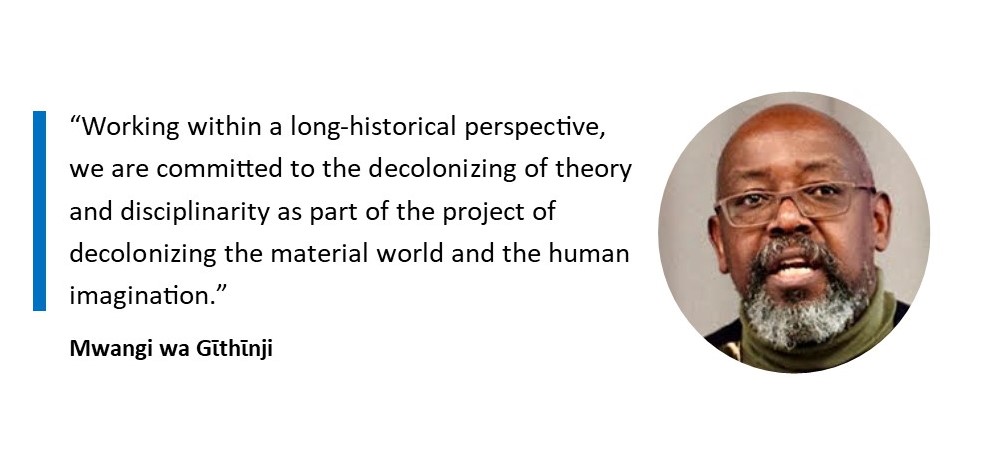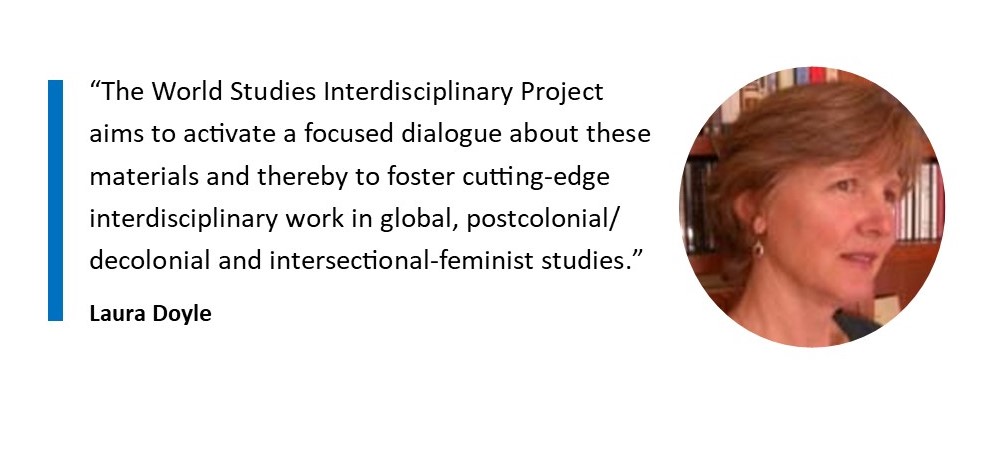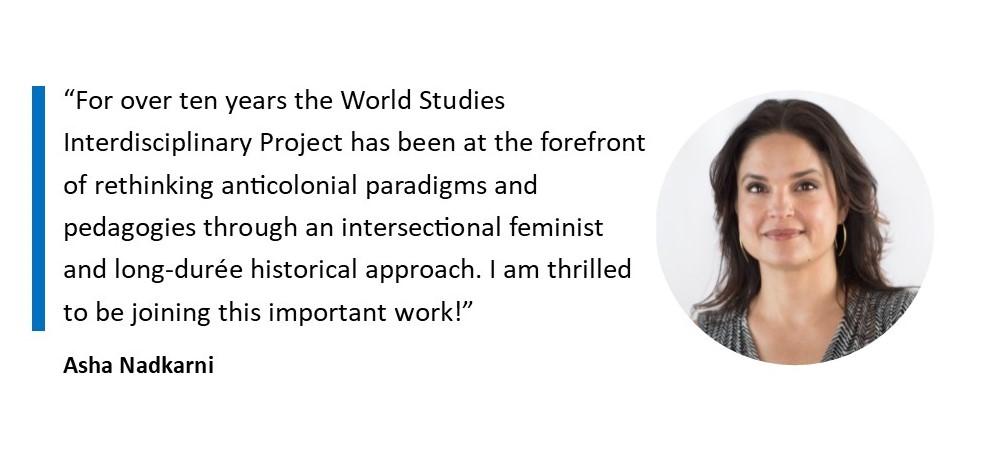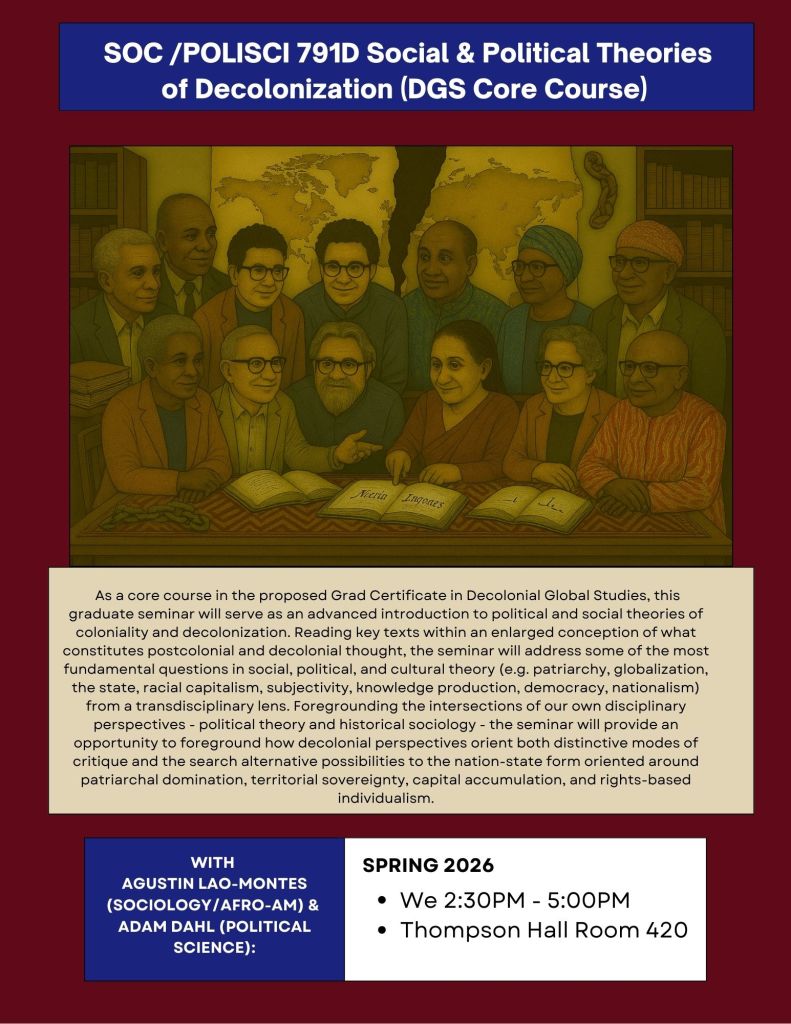World Studies Interdisciplinary Project

WSIP
WSIP is an international collective of faculty and activist intellectuals devoted to decolonial paradigm-rethinking. Working within longue-durée, non-eurocentric, and intersectional frameworks, our interdisciplinary research and pedagogy center on collaborative methods. Through non-competitive idea-sharing, listening, and trust-building, we seek to actualize among ourselves the very forms of ethical community that we imagine for decolonized futures. Co-coordinated by Professors Mwangi wa Gῖthῖnji (Economics), Laura Doyle (English), and Asha Nadkarni (English), WSIP receives crucial support from both the Mellon Foundation and the University of Massachusetts Amherst. WSIP has hosted several collaborative events at UMass-Amherst, ranging from our Fall 2012 seminar-conference on “Empires, Economy, and Culture before and after 1500: Implications for Global and Postcolonial Studies,” through our 2015-16 Mellon Sawyer Seminar, “Beyond Medieval and Modern: Rethinking Global Paradigms of Political Economy and Culture.”
Most recently, WSIP received a $500,000 grant from The Andrew W. Mellon Foundation to create a Mellon Fellows Program and a Graduate Certificate Program in Decolonial Global Studies (DGS) at UMass Amherst. The Certificate program fosters an interdisciplinary activist-intellectual community for intersectional, indigenous, decolonial, and race studies scholars. Conceived by faculty and PhD Mellon Fellows in a year-long seminar, the Certificate courses are co-taught by interdisciplinary pairs of faculty from across several units, including the College of Humanities and Fine Arts (HFA), the College of Social and Behavioral Sciences (SBS), and the School of Sustainability and Earth Studies (SES). In conjunction with the DGS Certificate, we host activists and scholars through Mellon Liaison Fellow residencies that feature both public discussions and small seminars.
In Fall 2024 we will continue to widen our community by co-hosting a symposium on “The Futures of Postcolonial Thought: Desire and Collectivity” in collaboration with the Association of Postcolonial Thought. This symposium is the third in a series of five, and it builds on the conversations begun in 2022 at the University of California, Berkeley (“Anticolonialism as Theory”) and in 2023 at the University of Michigan, Ann Arbor (“Crisis.”). The 2024 symposium theme, “Desire and Collectivity,” gestures to the many political, personal, and affective drives that structure our orientation to the past and to the possibilities of the present. It likewise speculates about the collectivities such desires engender and the futures they call into being. The symposium will take place September 26-28, at the University of Massachusetts Amherst/Five Colleges. There are no association or registration fees required, and all events are free and open to the public.



Announcements & Upcoming Events
Spring 2026 – Core Course
SOC /POLISCI 791D Social and Political Theories of Decolonization (DGS Core Course)

Decolonial Reconstellations: A Three Volume Anthology
Contact Us:
Professor Asha Nadkarni
nadkarni@english.umass.edu
Professor Laura Doyle
ldoyle@english.umass.edu
Professor Mwangi wa Gῖthῖnji
mwangi@econs.umass.edu